A look at some of the set pieces from 'The Godfather'
Academy Museum of Motion Pictures' assistant curator Sophia Serrano gives a close look at some of the iconic set pieces from "The Godfather," including the desk used in the first movie.
Francis Ford Coppola's 1972 mob crime drama, "The Godfather", widely considered one of the greatest films of all time, marked its 50th anniversary this year.
The Paramount Pictures movie, which was nominated for 11 Academy Awards and won three, including Best Picture, Best Actor and Best Adapted Screenplay, starred Marlon Brando, Al Pacino, James Caan, Robert Duvall, Richard Castellano, Diane Keaton, Sterling Hayden, John Marley and Richard Conte.
In honor of the film's milestone, the Academy Museum of Motion Pictures in Los Angeles is hosting a gallery exhibit titled "The Art of Moviemaking: The Godfather", which showcases original costumes, props, scripts and equipment from the production.
Fox News Digital got an inside look at the exhibit, which details the collaborative work by each production branch involved in making of the beloved film.
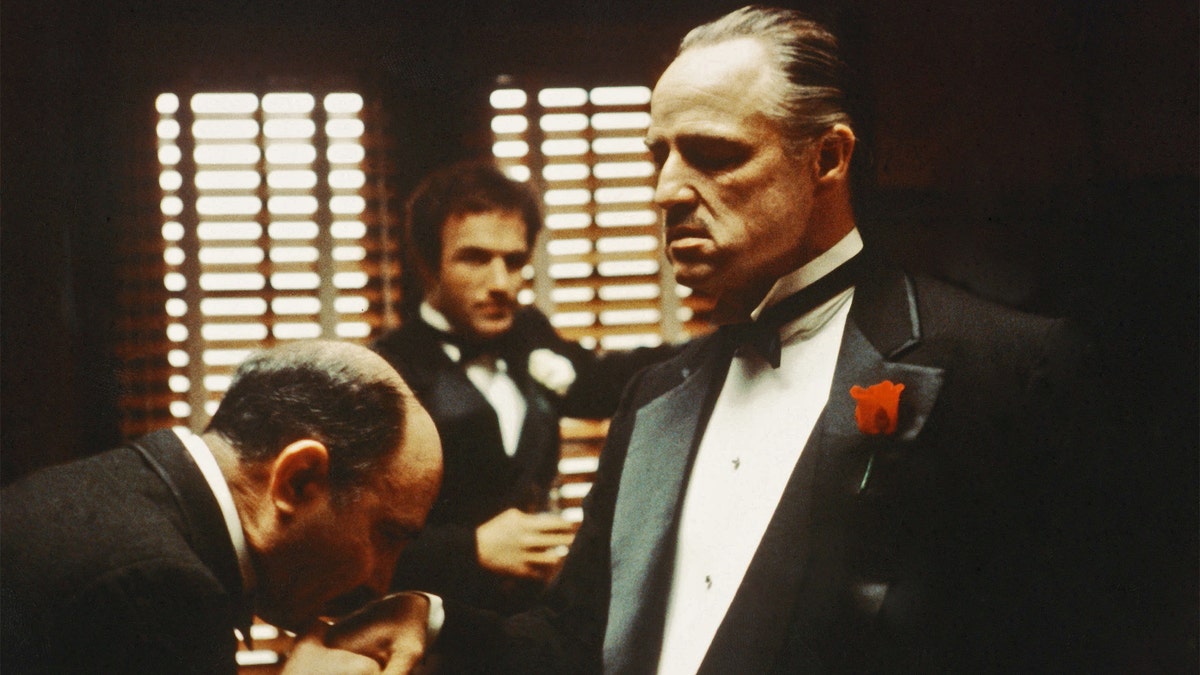
Fox News Digital got an inside look at the Academy Museum of Motion Pictures exhibit "The Art of Moviemaking: The Godfather." (Silver Screen Collection/Hulton Archive/Getty Images)
In one of the film's most infamous scenes, corrupt Hollywood film producer Jack Woltz, played by Marley, awakens to find the severed head of his prized racehorse, Khartoum, beside him in bed.
JAMES CAAN REMEMBERED BY HOLLYWOOD: ‘GODFATHER’ STAR HONORED WITH TRIBUTES FOLLOWING HIS DEATH AT 82
"One of the more gruesome relics that we have in the gallery is the prop taxidermy horse head," assistant curator Sophia Serrano told Fox News Digital. "It was only used for rehearsals for when Woltz discovers his beloved Khartoum in his bed."
She continued, "The actual filming used a real horse head sourced from a local slaughterhouse, so no horses were actually harmed in the making of the films. But this prop horse head survives."
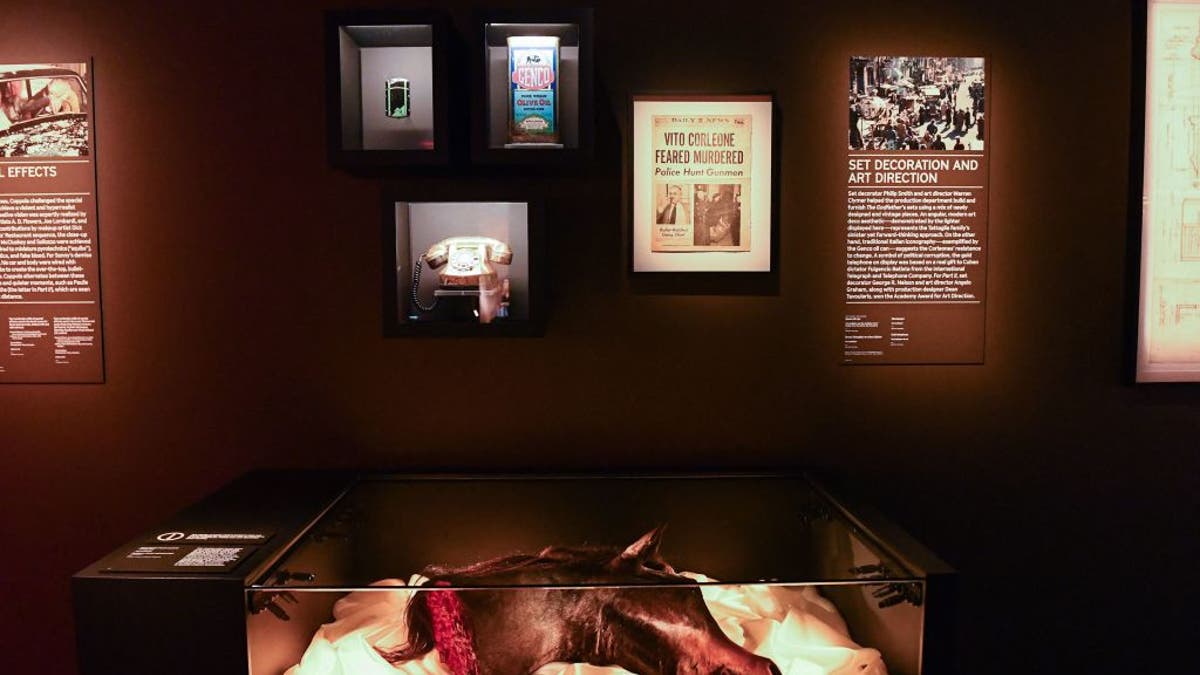
The taxidermy horse head that was used for rehearsals is on display at the museum. A real horse head was used in the filming of the movie. ( VALERIE MACON/AFP via Getty Images)
In the DVD commentary for the "The Godfather" Super-Deluxe Collection, Coppola revealed he received many angry letters from animal activists who believed that the filmmakers had killed a horse for the scene.
"We didn’t kill the horse," Coppola told Washington D.C.'s Fox 5 in 2015. "Most horses are killed for dog food. So we went to the dog food company, and we looked at the horses before they were slaughtered. I didn’t do it, but the art director found one that looked like the real horse and I said when you kill that horse we want the head."
Per the DVD commentary, the company sent the filmmakers a box containing the head wrapped in ice after the horse had been slaughtered.
Other notable objects featured in the exhibit include the lighter used when Luca Brasi, played by Lenny Montana, is killed by the Tattaglia family; a Genco Pura olive oil can, the olive oil front company formed by Brando's Vito Corleone; the original prop newspaper from Corleone's attempted murder; and the golden telephone from "The Godfather Part II."
Another section of the exhibit features artifacts from the production's hair and makeup department. "The hair and makeup is a wonderful section because you really see the formation of the characters, particularly Marlon Brando," Serrano said.
"We have a life cast of Marlon Brando. The life cast was originally made for prosthetics. Brando would not wear them. And then we also have the famous dental appliance, which was made by [special effects make-up artist] Dick Smith in order to keep consistency in his bulldog jawline."
Serrano explained that Brando had originally achieved the look by stuffing Kleenex in his mouth, but Smith wanted a more consistent method. In an interview that Coppola gave to critic Annette Insdorf via The Hollywood Reporter, the director explained that Brando first stuffed his mouth with Kleenex and also colored his hair black with shoe polish for the screen test.
He said that the studio was initially opposed to casting Brando, but after viewing his transformed appearance in the screen test, he won the part.
Smith's original makeup kit is also on display, as well a photo from the set in which the artist can be seen using it.
"One of the things I also love about this picture is you see all the cue cards for Marlon Brando so that he can get all his lines right," Serrano told Fox News Digital. "He always operated by the cue cards that helped him improvise and be more sporadic on set."
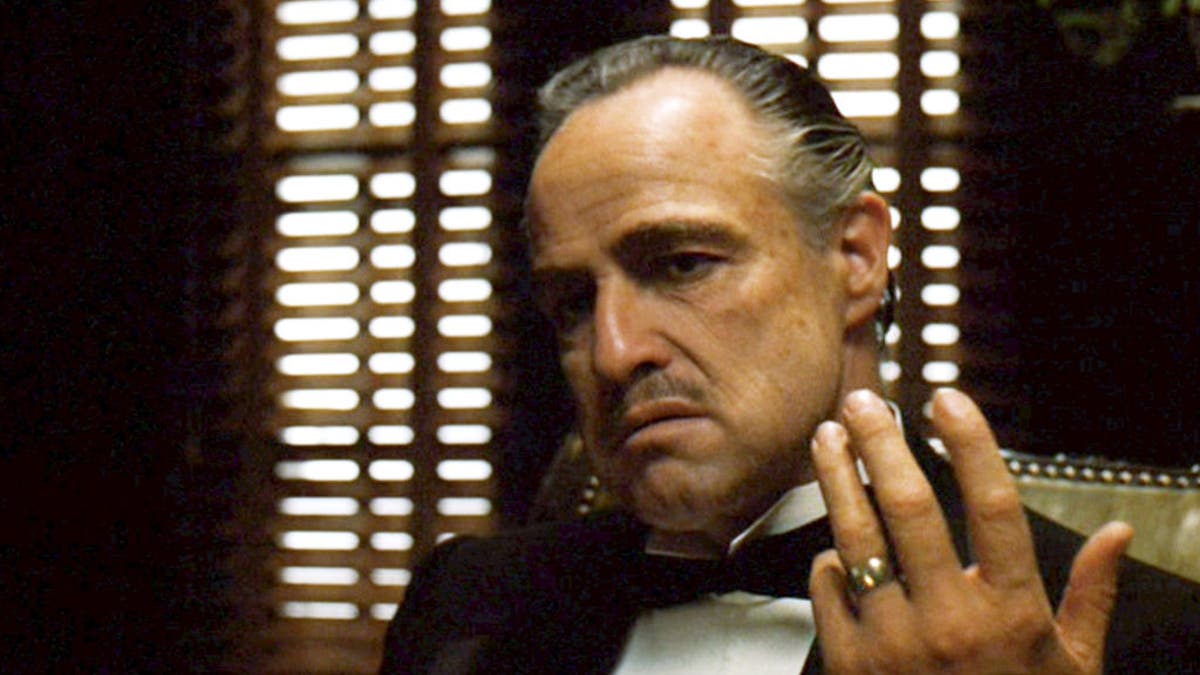
Marlon Brando initially stuffed his mouth with Kleenex to achieve Corleone's bulldog jawline. (Photo by CBS via Getty Images)
Additionally, Serrano pointed out a collection of little statuettes that Smith created when he had downtime on set.
"He would take a palm sized clump of clay and mold people that he was observing on set. So we have Francis Ford Coppola, Brando and Robert Duvall," she noted.
On display in the section that Serrano proclaimed as her "favorite part of the gallery," is the original "Godfather" desk and chair that were used throughout the entire trilogy. She went on to say that the pieces were featured in a recreated set that had been designed by the team behind the Paramount+ miniseries "The Offer." The show, which ran from April to June, chronicled the real story behind the making of "The Godfather."
CLICK HERE TO SIGN UP FOR OUR ENTERTAINMENT NEWSLETTER
"They took a lot of effort and details to recreate it as you see the desk and chair in the opening scene of "The Godfather," she said. "The desk and chair remain a constant as the seat of power throughout the three films, however, their surroundings changed throughout the trilogy."
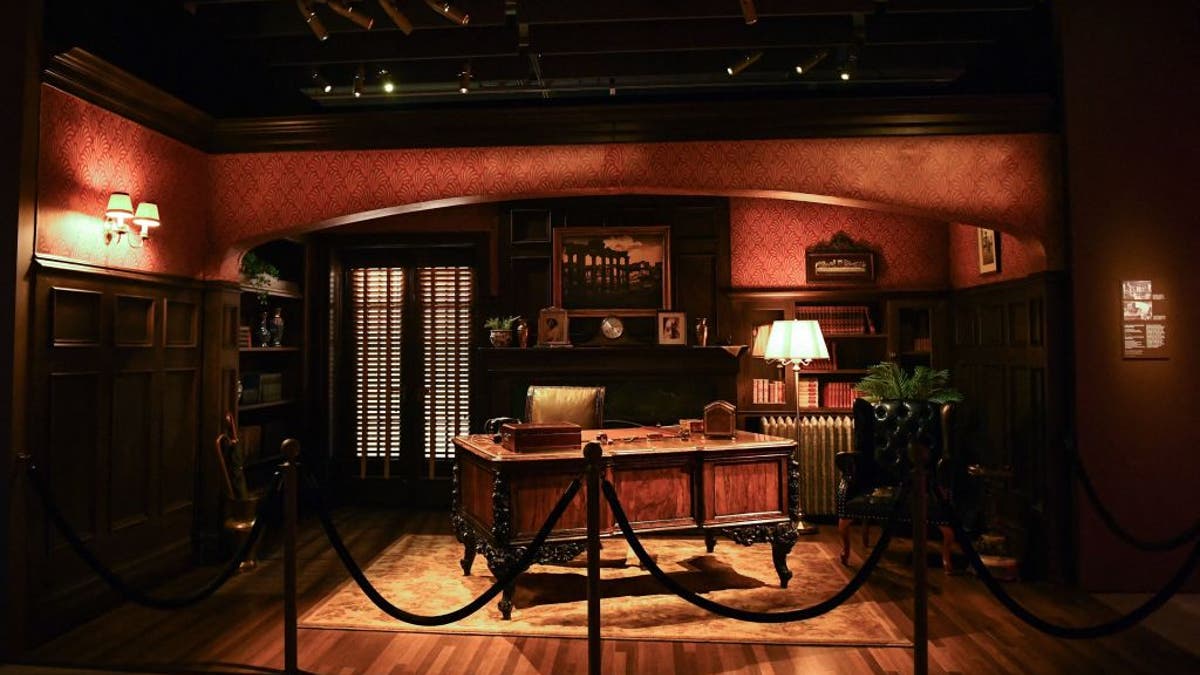
The exhibit includes the original desk and chair that were featured throughout the trilogy. (VALERIE MACON/AFP via Getty Images)
"We have some images into the display that show you how the desk is in different environments throughout the movies, but here you can see it in its original appearance in part one," she added.
"So this really gives you a sense of the seat of power where people come to make their pleas to Don Corleone."
CLICK HERE TO GET THE FOX NEWS APP
Other items on display include Coppola's annotated copy of Puzo's original novel "The Godfather", co-screenwriters Coppola and Puzo's original scripts and notes, a photo gallery of different filming locations, and the costumes worn by members of the cast including Brando, Keaton, Pacino and "The Godfather Part II's" Robert de Niro.
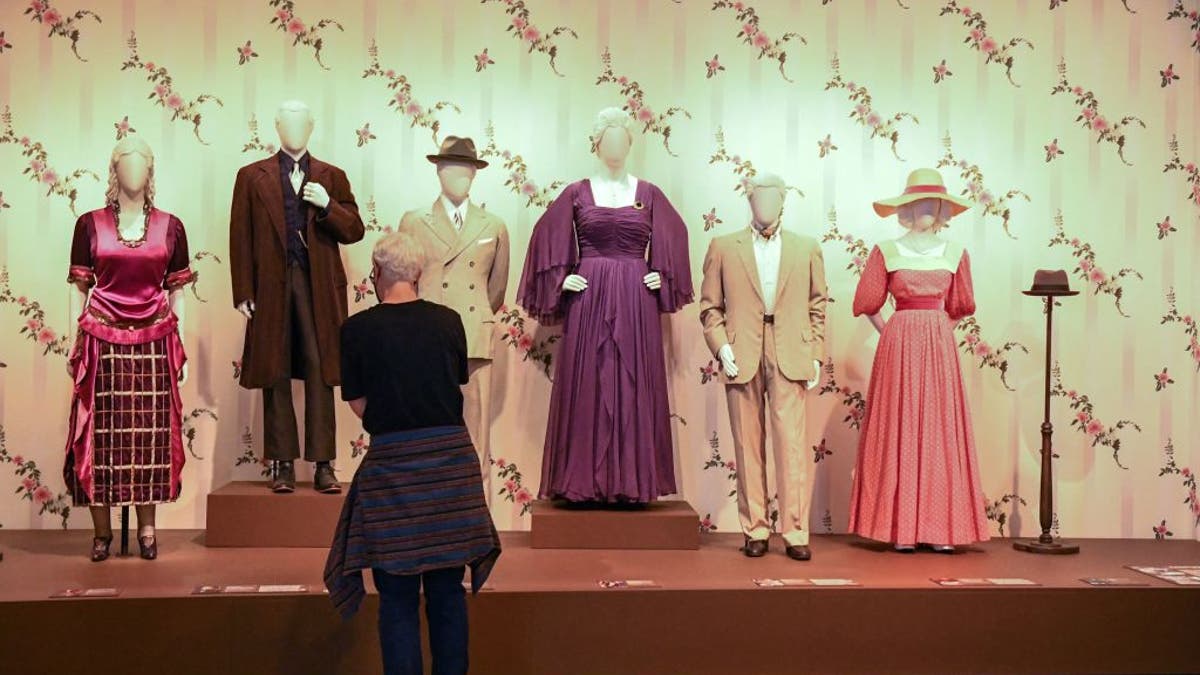
Original costumes worn by members of the cast including Brando, Keaton, Pacino and "The Godfather Part II's" Robert de Niro are also on display. (VALERIE MACON/AFP via Getty Images)









